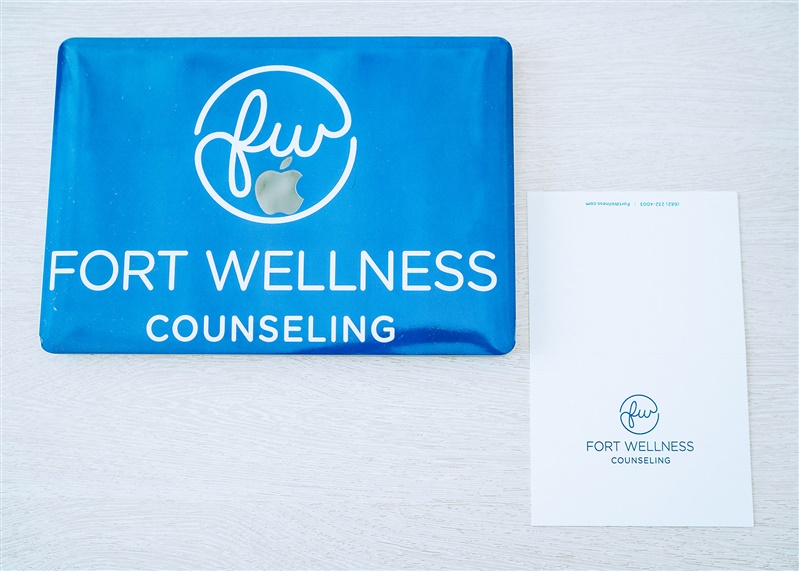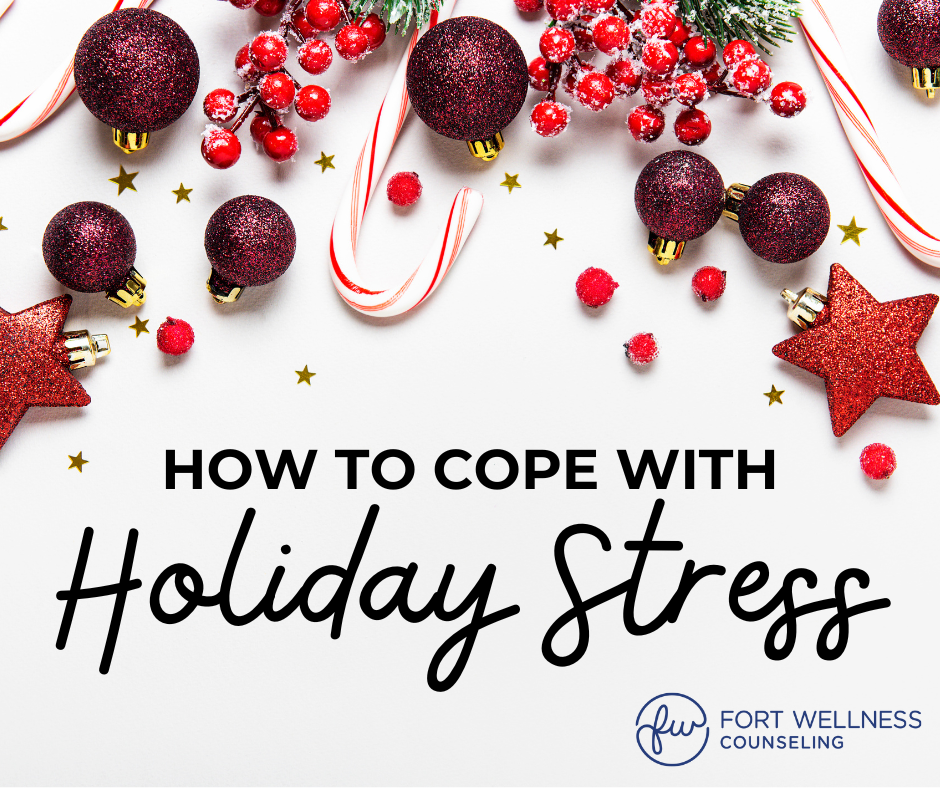
What Is Nature Therapy? (And Why You Should Be Doing It!)
What is Nature Therapy? (And Why You Should Be Doing It!) By: Rane Wallace, MS, LPC, LCDC, SAP Let’s face it: there’s just something about

Are you stuck in a rut and having a hard time shaking it? Or maybe you’re having a hard time concentrating at work? Have you found yourself losing interest in people and activities you once enjoyed? Are you asking yourself, do I need therapy?
Whatever the cause, there are times in all our lives when things just don’t feel right. Sometimes, we handle these challenges on our own. Or with the help of family and friends. But other times, that just doesn’t seem to be enough. What are you supposed to do then? At what point should you enlist the help of a professional?
Therapy is a common treatment for both mental health conditions and everyday hardships. Here at Fort Wellness Counseling, I do my best to create a comfortable, non-judgmental space for you. A space for you to deal with past traumas, stresses, anxieties, relationship issues, mood disorders, and more. However, I understand that a lot of people aren’t sure whether they need professional help.
If you are asking yourself: Do I need therapy? Keep reading. Today’s blog post is covering the top 8 signs you should see a therapist (and more importantly, how I can help you):
A little stress here and there is normal. But, constantly questioning the events of your life and/or struggling to finish everyday tasks could be a sign that you need therapy. If you feel like you have too much on your plate — and you aren’t sure that you can tackle it all — working with a licensed therapist can help lighten your load.
Humans are social beings, and our relationships are some of the most important aspects of our lives. Therefore, when we experience a change in their dynamic — whether it be struggling to communicate or increased arguing — it could be a sign to seek professional help.
Couples therapy has proven to have a positive impact on the emotional well-being of both partners. At Fort Wellness Counseling, I have ample experience helping couples resolve conflicts and successfully improve their relationships. While couples counseling typically includes both partners, I also do a lot of work with individuals on their own.
Another sign you should see a therapist is if depression and/or anxiety begin to interfere with your quality of life. Depression and anxiety present themselves in a multitude of ways (feeling hopeless, lacking motivation, increasing isolation, a decreasing appetite, difficulty sleeping, etc.). If any of these symptoms start impacting your everyday life — including your ability to complete basic tasks or go to work — then you should make an appointment with a therapist.
Psychotherapy has proven to help individuals with depression by:
While needing your alone time is normal — and necessary for most introverts! — avoiding social situations altogether might be an indicator that you should see a therapist. If you notice that you are feeling distressed around others, fear being with people, or avoid people and activities that you previously enjoyed, a therapist could help you understand and deal with these feelings. Or if you notice you are experiencing problems related to FOMO – the fear of missing out. You can learn more about how to deal with fomo in therapy.
Human beings are creatures of habit, and any major change or traumatic event can seriously affect us emotionally. While many people think traumatic events are limited to combat soldiers, car accidents, affairs, losing loved ones, or other events of that nature could also be considered traumatic.
Trauma therapy focuses on helping people with past trauma or post-traumatic stress disorder (PTSD) manage their experiences. Although facing such life events might be difficult, therapy can provide skills and techniques to handle negative thoughts and feelings, reframe your traumatic experiences, improve close relationships and connections with people, reduce your irritability, and eliminate triggers and/or symptoms of PTSD.
Whenever we’re under mental or emotional stress, we tend to cope via rewarding, numbing, distracting, and potentially destructive activities. While substance abuse and sex are two common ways of temporarily alleviating unwanted feelings, they exacerbate problems in the long run. If you or a loved one is struggling with addiction, an addiction therapist, such as me, can help you break the cycle. I work with clients that have drug and alcohol problems, and also provide porn addiction counseling.
While we all experience a wide range of emotions throughout our lives, it is important to pay attention to how intensely we experience them. For example, while extreme anger is often (harmfully) assumed to be merely a masculine trait, it could actually be an indicator of depression.
If you are experiencing intense emotions and aren’t quite sure how to deal with them, a professional therapist can help. Not only is it our job to help you manage your emotions more effectively, but therapy is a safe space to explore any deeper issues that might be lying under the surface.
Mental health issues can impair your attention, concentration, memory, and energy, which can lead to underperformance at work or school. Therefore, if you are noticing a lack of interest or increased errors at work, you might be suffering from an underlying psychological or emotional issue. Seeking the help of an experienced therapist can help you regulate your behavior and learn adaptive ways to manage that stress.
So, do you need therapy? Hopefully reviewing these 8 signs you should see a therapist will help you answer that question.
If you or a loved one is seeking therapy in the Dallas-Fort Worth area, look no further than Fort Wellness Counseling in Fort Worth, TX. With over a decade of experience providing specialized counseling and therapy services, I am confident in my ability to give you a higher quality of life.
Contact our team today for patient-centered care that provokes long-term change. After all, you deserve to thrive.

What is Nature Therapy? (And Why You Should Be Doing It!) By: Rane Wallace, MS, LPC, LCDC, SAP Let’s face it: there’s just something about

The Benefits of Virtual Therapy in Texas By: Rane Wallace, MS, LPC, LCDC, SAP Technology is changing everything, and healthcare is no different! Thanks to

How to Get Over a Breakup By: Rane Wallace, MS, LPC, LCDC, SAP Breaking up with a romantic partner is painful – no matter the reason

How to Set New Year’s Resolutions By: Rane Wallace, MS, LPC, LCDC, SAP How to Set New Year’s Resolutions Setting goals gives us a sense

How to Cope with Holiday Stress By: Rane Wallace, MS, LPC, LCDC, SAP Say No to Prevent Burnout There are an abundance of obligations that

Trauma Therapy in Fort Worth: Types, Benefits & More By: Rane Wallace, MS, LPC, LCDC, SAP Believe it or not, an estimated 60% of men

How to Communicate Better in Relationships By: Rane Wallace, MS, LPC, LCDC, SAP Whether with coworkers or your significant other, the ability to communicate effectively

How to Prevent Seasonal Affective Disorder (SAD) By: Rane Wallace, MS, LPC, LCDC, SAP If you’re struggling with winter blues, know you’re not alone. SAD

What is a Functioning Alcoholic? By: Rane Wallace, MS, LPC, LCDC, SAP When someone is deemed a ‘high-functioning alcoholic,’ they’re able to carry out daily

How to Help Yourself – And Others – with Suicidal Ideation By: Rane Wallace, MS, LPC, LCDC, SAP September is Suicide Awareness Month. And while

32 Questions to Strengthen Your Relationship By: Rane Wallace, MS, LPC, LCDC, SAP When was the last time you had a meaningful conversation with your

The Fawn Response: How Trauma Can Lead to People Pleasing By: Rane Wallace, MS, LPC, LCDC, SAP Do you often find yourself putting the needs

How to Overcome ‘Hangxiety’ (Post-Drinking Anxiety) By: Rane Wallace, MS, LPC, LCDC, SAP Thought the consequences of drinking heavily were merely physical? Unfortunately, you’ll have

What is Box Breathing? Plus Tips for Beginners By: Rane Wallace, MS, LPC, LCDC, SAP Ever heard of box breathing? This popular relaxation technique involves

Do Mindfulness Exercises for Anxiety Work? By: Rane Wallace, MS, LPC, LCDC, SAP Do mindfulness exercises for anxiety work? If you (or people in your

What is Trauma Bonding? 4 Warning Signs By: Rane Wallace, MS, LPC, LCDC, SAP If you’ve ever been in an abusive relationship and felt bonded

Why Do We Cry? 4 Reasons and Crying Benefits By: Rane Wallace, MS, LPC, LCDC, SAP There’s no getting around it – crying is part

What Is Habit Stacking? (And How to Do It) By: Rane Wallace, MS, LPC, LCDC, SAP Supporting our mental health is one of those goals

5 Tips for Living with Someone with OCD By: Rane Wallace, MS, LPC, LCDC, SAP While living with OCD (obsessive-compulsive disorder) can be demanding, living

What is Assertive Communication? By: Rane Wallace, MS, LPC, LCDC, SAP So, what is assertive communication? Well, in a nutshell, this communication style aims to

PTSD Counseling in Fort Worth: Proven Coping Strategies By: Rane Wallace, MS, LPC, LCDC, SAP For those who didn’t already know, post-traumatic stress disorder (PTSD)

Brainspotting vs. EMDR: What’s the Difference? By: Rane Wallace, MS, LPC, LCDC, SAP According to the National Council for Mental Wellbeing, 70% of American adults

Mindfulness Exercises to Strengthen Your Recovery By: Rane Wallace, MS, LPC, LCDC, SAP Are you recovering from alcohol and/or substance abuse? Self-improvement is a life-long

How to Find a Counselor in Fort Worth By: Rane Wallace, MS, LPC, LCDC, SAP Are you considering therapy? If so, finding a counselor in

How To Not Be Codependent In A Relationship By: Rane Wallace, MS, LPC, LCDC, SAP Wondering how to not be codependent in a relationship? Sometimes

What is Parental Anxiety? Coping Tips from a Therapist By: Rane Wallace, MS, LPC, LCDC, SAP Every parent wants to shield their child from danger

What is EMDR Therapy? By: Rane Wallace, MS, LPC, LCDC, SAP Ever heard of eye movement desensitization and reprocessing therapy? More commonly known as EMDR,

8 Proven Tips to Sleep Better at Night (and Improve Your Mental Health) By: Rane Wallace, MS, LPC, LCDC, SAP Struggling with restless nights and

How to Have a Healthy Relationship with Social Media By: Rane Wallace, MS, LPC, LCDC, SAP In today’s world, there’s no escaping the presence of

What Is The Goal of Psychotherapy? By: Rane Wallace, MS, LPC, LCDC, SAP Have you been considering psychotherapy? The start of a new year is

What is Brainspotting Therapy? By: Rane Wallace, MS, LPC, LCDC, SAP Brainspotting therapy is a kind of alternative therapy that is gaining immense popularity in

Healing After an Affair: 7 Strategies for Affair Recovery Rane Wallace, MS, LPC, LCDC, SAP It doesn’t matter who you are – working through an

12 Benefits of Gratitude By: Rane Wallace, LPC, LCDC, SAP With Thanksgiving coming to a close, we thought it was fitting to explore the link

How to Avoid Seasonal Depression By: Rane Wallace, MS, LPC, LCDC, SAP Daylight savings has officially come and gone. For most of us, this means

Top 10 Ways for How To Keep Your Relationship Strong and Healthy By: Rane Wallace, MS, LPC, LCDC, SAP Relationships can be tricky whether you’re

10 Best Ways to Calm Yourself Down Rane Wallace, MS, LPC, LCDC, SAP When we’re navigating social media, complex relationships, and performance pressures, it’s easy

How to Set Boundaries Between Family Members By: Rane Wallace, MS, LPC, LCDC, SAP Learning how to set boundaries between family members is imperative. From

Understanding the Quarter-Life Crisis By: Rane Wallace, MS, LPC, LCDC, SAP You’ve probably heard of the ominous mid-life crisis, right? Having been stereotyped in plenty

Am I An Alcoholic? 6 Warning Signs of Alcoholism By: Rane Wallace, MS, LPC, LCDC, SAP Be honest, what comes to mind when you think

Top Coping Skills for Anxiety and Stress Management By: Rane Wallace, MS, LPC, LCDC, SAP Being well into our second year of a global pandemic,

5 Self-Care Journaling Prompts for Mental Health By: Rane Wallace, MS, LPC, LCDC, SAP In the world we live in today, mental health struggles are

What to Do While You Wait for Counseling By: Rane Wallace, MS, LPC, LCDC, SAP From problems with anxiety to depression to addiction problems, there

What is Postpartum Depression? (And How to Overcome It) By: Rane Wallace, MS, LPC, LCDC, SAP Have you or a loved one recently had a

The Effects of Stress on Your Body By: Rane Wallace, MS, LPC, LCDC, SAP Are you feeling stressed out? Overwhelmed? Increasingly anxious? If so, you

How to Stop a Panic Attack: 9 Strategies By: Rane Wallace, MS, LPC, LCDC, SAP If you’ve experienced a panic attack, then you know how